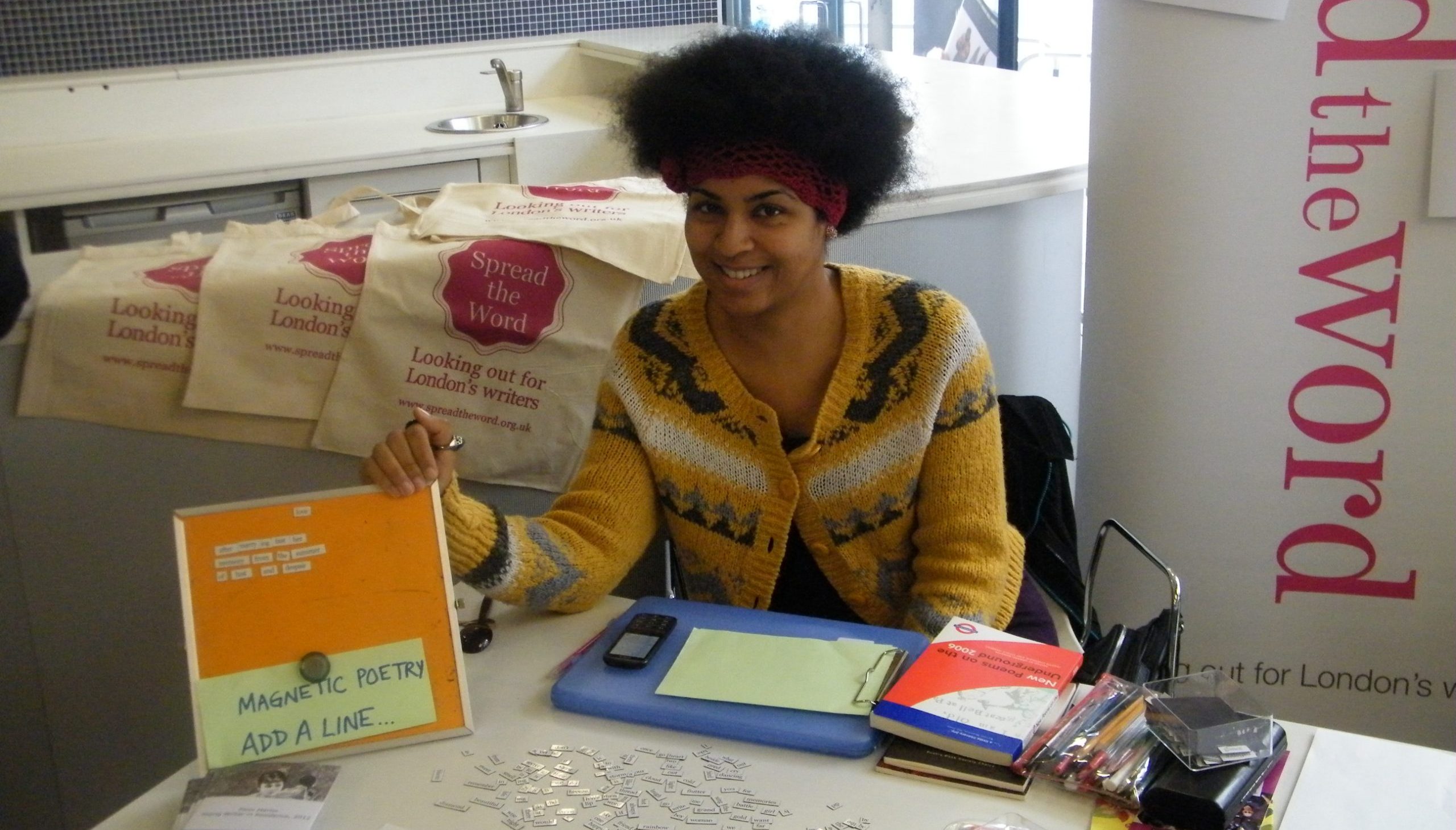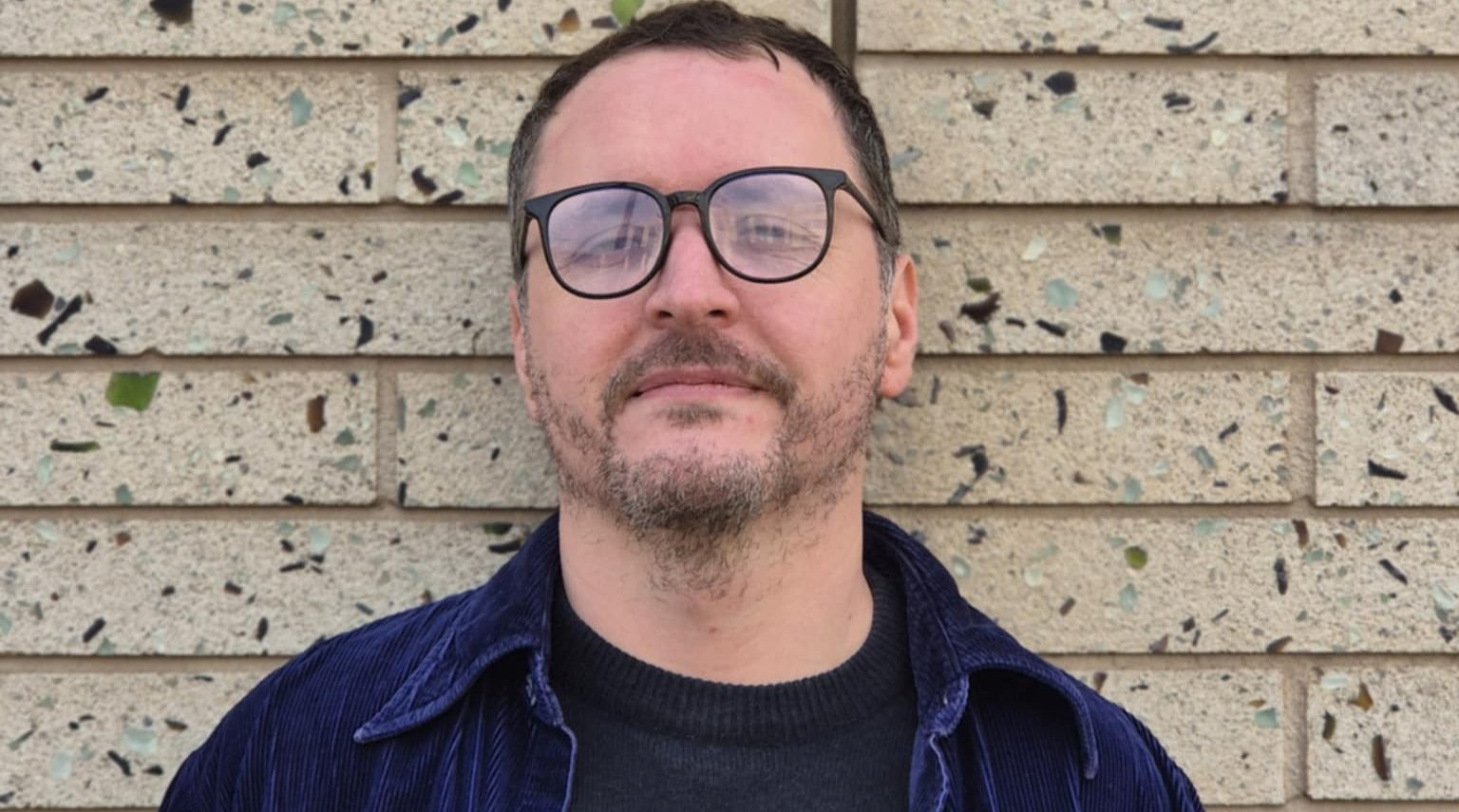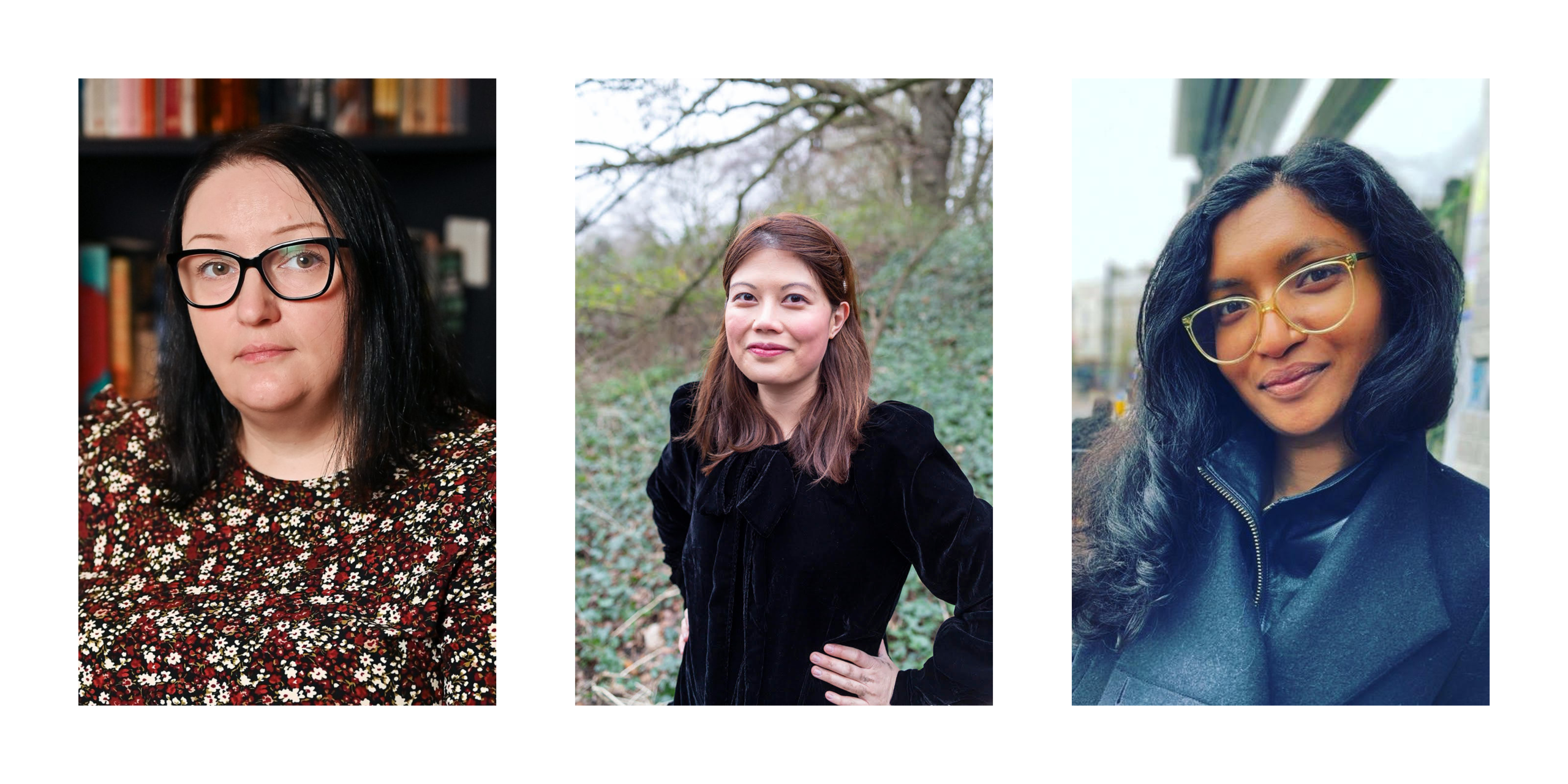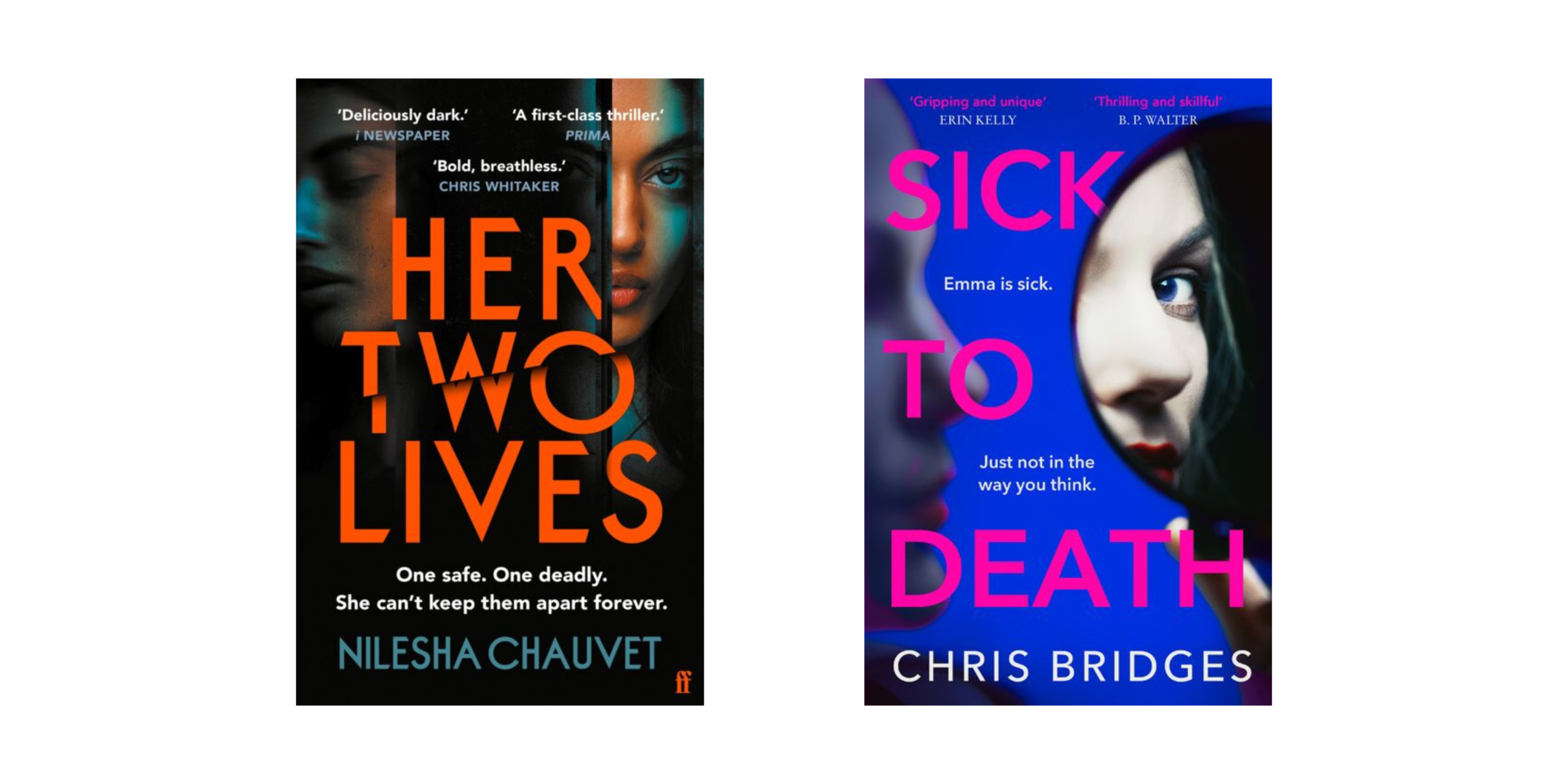
This year, our little organisation turns the big 3 0! We’re taking the opportunity to reflect on the brilliant writers, team members, partners, participants, projects and programmes that have formed part of our story so far, and we’d love to hear from you.
Do you have memories of taking part in Spread the Word activities from years, even decades ago? Are there people or projects that have stayed in your mind? Has Spread the Word had an impact on where you are today?
We’ve created a short form as a resting place for your memories. With your permission, we’d love to share these to celebrate the 30 years we’ve worked so far and look ahead to what comes next. We want to celebrate the incredible people who founded Spread the Word and who have formed a part of it’s mission: to create an equitable publishing industry and opportunities for all talented writers.
30 years of impactful work suporting writers and telling the stories that need to be heard gives us a strong foundation on which to build our ambitions for the future. Sharing your memories will help us to tell our story and articulate our imapct. Which in turn will help us to reach funders and secure the organisation’s future.
Thank you for being a part of our journey. We hope you’ll come along for the next chapter.
Share your memories here: Spread the Word at 30
This opportunity will close on Monday 8 September 2025. If you have any questions about the campaign, please get in touch with Alice Sewell, our interim Head of Communications, via [email protected].
Image: former colleague Annette Brook
class="post-75563 post type-post status-publish format-standard has-post-thumbnail hentry category-news"Inaugural Disabled Poets Prize winner Jamie Field joins New Northern Poets 2025 Cohort
Six emerging poets based in the North of England have been announced as the 2025 cohort of New Northern Poets. One of them is Jamie Field, winner of the inaugural Disabled Poets Prize in 2023.
The New Northern Poets programme includes a paid mentoring and development programme run by Word Up North and the University of Leeds Centre for Poetry.
We spoke to Jamie about his writing in an interview published on our website back in 2023. We’re really pleased to see his continued success as a writer.
Of the opportunity, Jamie said: “As a proud Northerner and lover of poetry it is a huge honour to be a member of this year’s cohort. I’m looking forward to an exciting few months.”
Find out more about the New Northern Poets programme on the Word Up North website. Congratulations Jamie!
class="post-75544 post type-post status-publish format-standard has-post-thumbnail hentry category-news"Three Spread the Word alumna achieve places on London Libraries Emerging Writers Programme
Three alumna from across Spread the Word development programmes have been awarded places on London Libraries Emerging Writers Programme.
The London Library Emerging Writers Programme supports early-career writers who have not yet published a full-length work of fiction, non-fiction, collection of poems, or had a full-length work professionally produced for stage/screen. The programme lasts one year, running from July 2025 to June 2026.
There was huge competition to take part. From nearly 2,000 entries judges selected just 40 writers for the programme. We are thrilled that Early Career Bursary alumna Sarah Cotton, and London Writers Awardees Anne Elicaño-Shields and Aparna Surendra have all been awarded places.
Sarah Cotton writes fiction which blurs the lines between the psychological and the unreal. In 2024 she received a Spread the Word Early Career Bursary and was longlisted and shortlisted for the Commonwealth and Bridport short story prizes. Her novel follows sisters navigating shifting power balances under patriarchal social systems.
Anne Elicaño-Shields is a Filipino writer and international development professional. She is the inaugural winner of the Political Short Story Award (Word Factory), a Future Worlds Prize finalist, and has performed at the London Literature Festival (Southbank Centre). She is writing her second novel, a decolonized retelling of a 19th century Filipino epic poem.
Aparna Surendra is a Sri Lankan writer based in London. Her fiction has been shortlisted for the White Review Short Story prize and Wasafiri New Writing Prize. She is a 2025 Tin House resident and previous recipient of the London Writers Award. Aparna writes fiction alongside a career in digital rights.
Read all about the programme on the London Library website.
class="post-75541 post type-post status-publish format-standard has-post-thumbnail hentry category-news"Two London Writers Awardees shortlisted for debut crime award

The McDermid debut award – a new award from the Theakston Old Peculier Crime Writing Awards – seeks to celebrate and platform the best debut crime writers in the UK.
2021 London Writers Awards alumna, Nilesha Chauvet (Her Two Lives, 2024) and 2022 alumni Chris Bridges (Sick to Death, 2025) are both shortlisted for the prize.
You can listen to Nilesha, Chris and David Goodman, another shortlisted author for the prize, in conversation, on the prize website.
Prize winners will be announced at the opening ceremony of the Theakston Old Peculier Crime Writing Festival on Thursday 17 July.
——
The London Writers Awards is our annual writer development programme, designed to launch the careers of writers underrepresented in UK publishing, including those who are Black, Asian and Global Majority, low-income, working-class upbringing, LGBTQIA+, and d/Deaf and disabled. The Awards are free to participate in, bursaries are available for writers on a low-income and there is also an access fund for disabled writers.
Submissions for the 2026 programme will open in September.
class="post-75536 post type-post status-publish format-standard has-post-thumbnail hentry category-news"McKitterick Prize awarded to London Writers Award alumni Tom Newlands
Tom Newlands, a 2021 London Writers Awards Alumni, took home the McKitterick Prize at the 2025 Society of Authors Awards.
Tom Newlands’ debut novel, Only Here, Only Now, was awarded the McKitterick Prize at the Society of Authors Awards last month. The prize commends a first novel by an author over 40.
Six novels were in the running for the prize, of which judge Rebecca Foster said: “Each of these six novels has a fully realized style. So confident and inviting are they that it’s hard to believe they are debuts. With nuanced characters and authentic settings and dilemmas, they engage the mind and delight the emotions. I will be following these authors’ careers with keen interest.”
Ashani Lewis, another London Writers Awards alumni of the same year, took home two prizes at the awards.
——
The London Writers Awards is our annual writer development programme, designed to launch the careers of writers underrepresented in UK publishing, including those who are Black, Asian and Global Majority, low-income, working-class upbringing, LGBTQIA+, and d/Deaf and disabled. The Awards are free to participate in, bursaries are available for writers on a low-income and there is also an access fund for disabled writers.
Submissions for the 2026 programme will open in September.
class="post-75531 post type-post status-publish format-standard has-post-thumbnail hentry category-news"London Writers Awards alumna Ashani Lewis takes home two prizes at Society of Authors’ Awards
2021 London Writers Awards Alumna Ashani Lewis took home an astonishing two awards at the Society of Authors awards last month.
Ashani Lewis took part in the London Writers Awards in 2021, developing her novel Winter Animals throughout the programme. She has now won not one, but two Society of Authors’ awards for the novel. Dialogue books have since, “acquired two ‘sharp, seductive’ novels and a short story collection from award-winning writer Ashani Lewis in a six-figure pre-empt” (The Bookseller).
Ashani has been awarded both the £10,000 Betty Trask Prize and the £4,000 Somerset Maugham Award for her novel Winter Animals, published by Dialogue Books. Judge Ellen Wiles described this extraodinary win as “a rare achievement.”
Read all about it in The Bookseller.
Tom Newlands, another alumni from the 2021 London Writers Awards programme, took home the McKitterick Prize at the same awards ceremony.
——
The London Writers Awards is our annual writer development programme, designed to launch the careers of writers underrepresented in UK publishing, including those who are Black, Asian and Global Majority, low-income, working-class upbringing, LGBTQIA+, and d/Deaf and disabled. The Awards are free to participate in, bursaries are available for writers on a low-income and there is also an access fund for disabled writers.
Submissions for the 2026 programme will open in September.